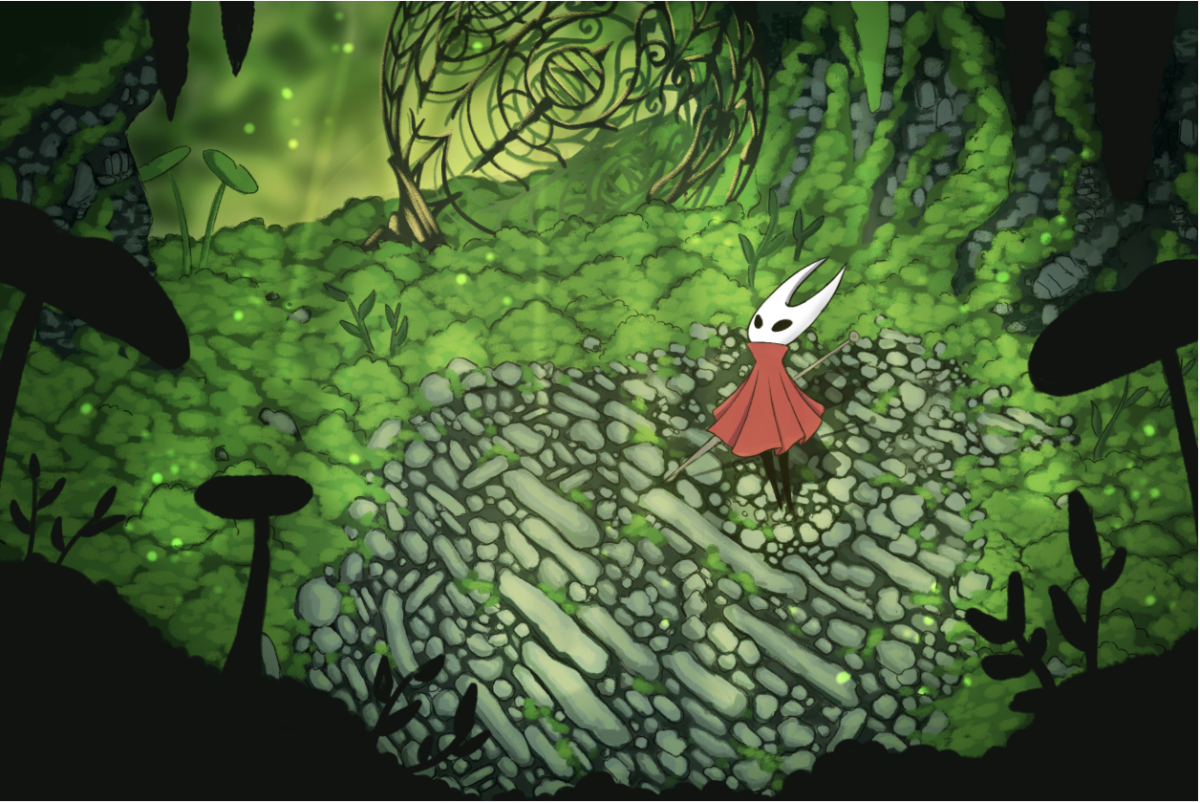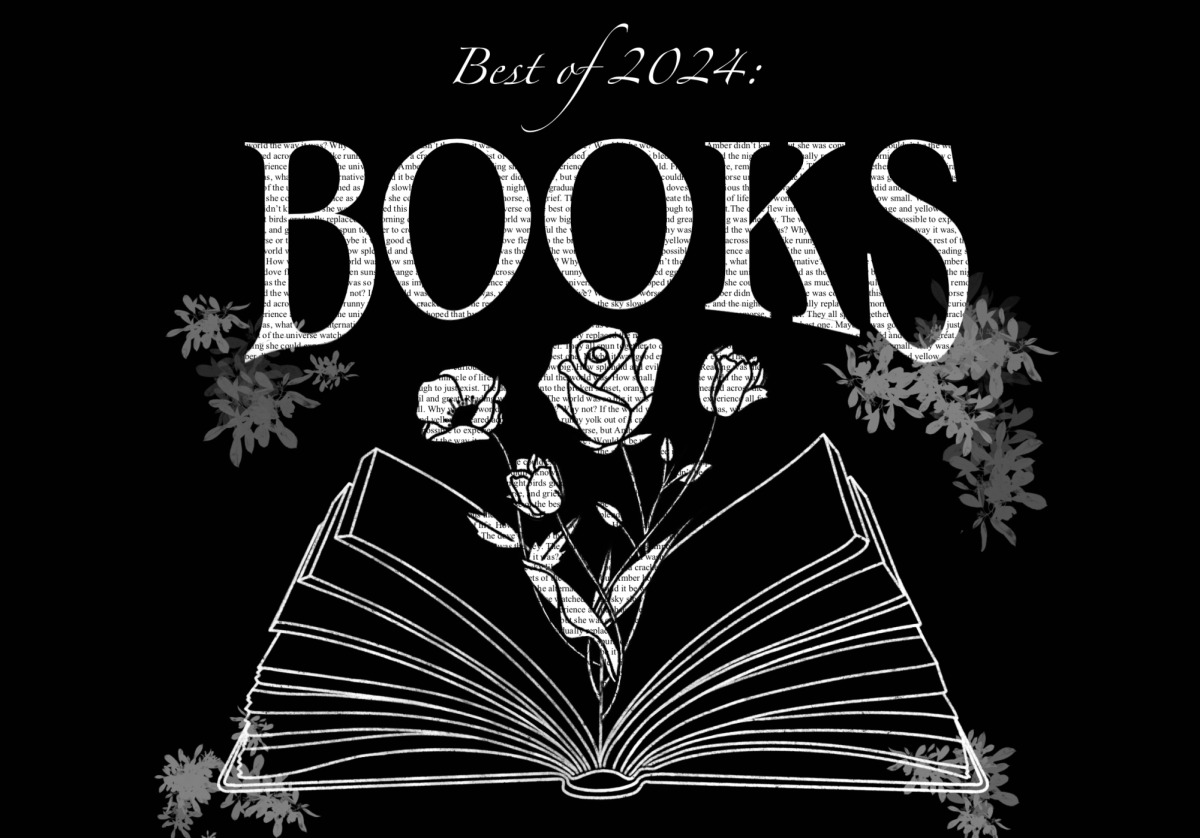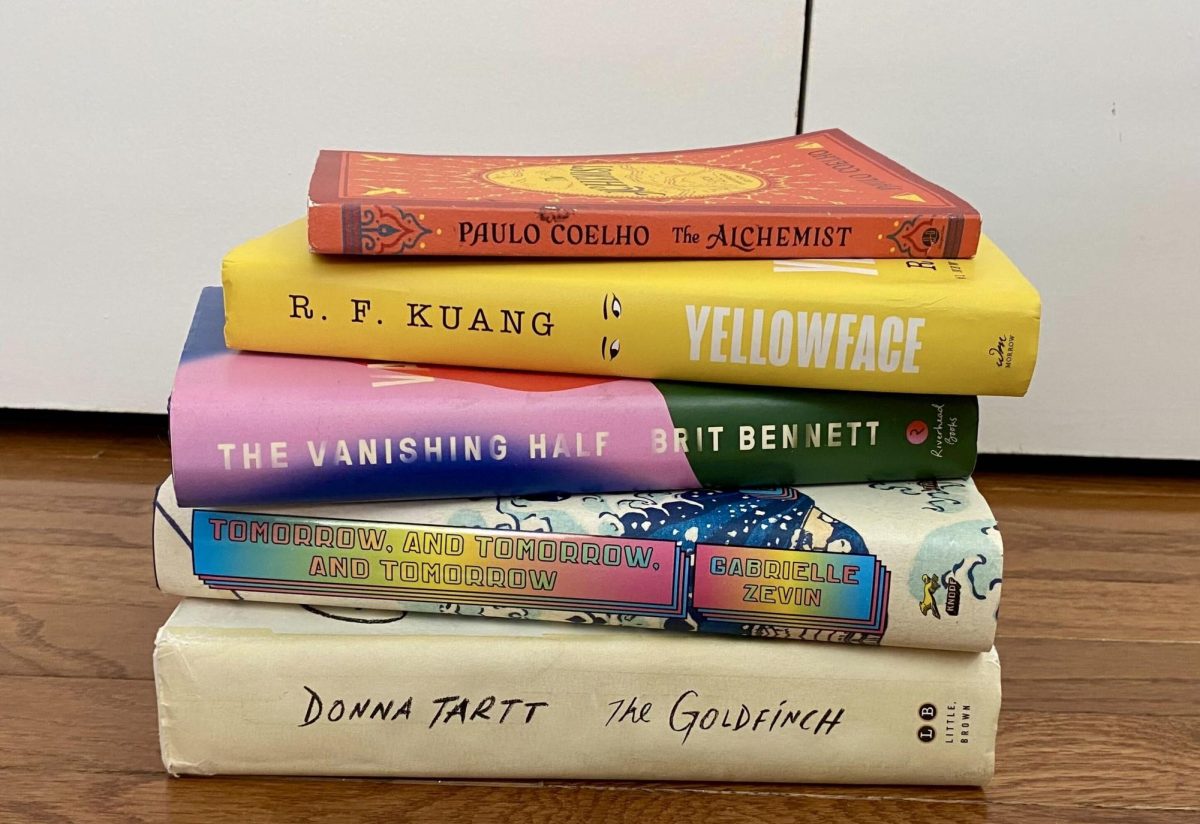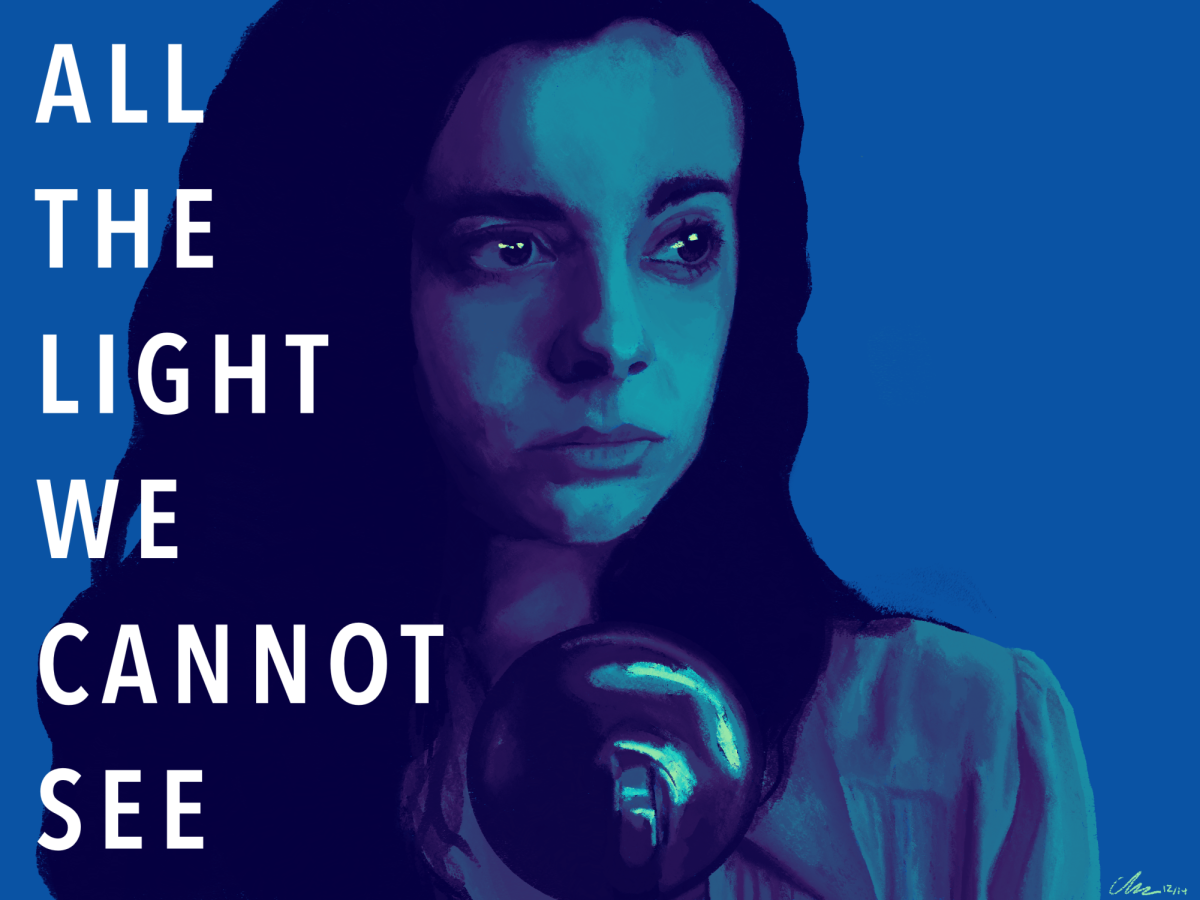Since the invention of the written word, books have influenced the way we learn about and perceive the world around us. From the various works of Jane Austen, to the modern-day author Stephen King, the evolution of books, while constant, still teaches us important lessons about what we know as life.
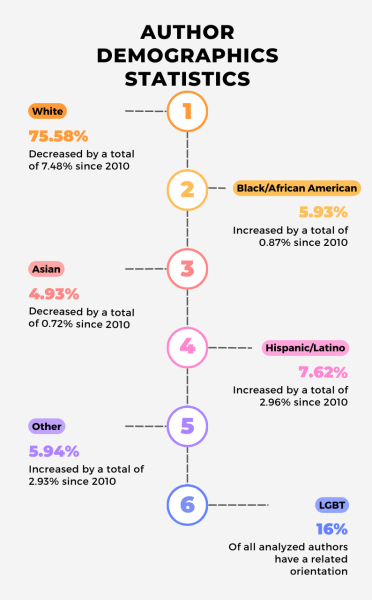
But with the millions of books out in the world distracting us from what may lay behind — we often forget about how these words are brought to life.
The publishing industry, known for being the daunting series of companies who authors struggle to break their way into, has recently been called out for its various injustices that have become more apparent in recent years.
In May of 2023, #1 New York Times bestselling author R.F. Kuang released the first book to point out the racial injustices seemingly practiced by publishers, titled “Yellowface.” Published by HarperCollins, this novel largely addresses the fact that the ethnicity of an author seems to be a determining factor of whether or not the company will accept their manuscript.
According to Wordstrated, 76% of authors are white, which has decreased by 7% since 2010. In the past, many have claimed that authors who are not white have a harder time making it into the publishing industry. However, in 2024, the opposite may be true. In Kuang’s novel, the main character, Juniper Hayward, is a white author who has gotten little attention for her book, and is jealous of her best friend, Athena Liu, an author of Asian descent who was considered a “literary darling.” After witnessing Liu’s death, Hayward, as the only person who knew about her manuscript, stole it and published it as her own under the name Juniper Song. The change in her last name was Kuang’s commentary on how more diverse authors are trending, or are otherwise in “high demand” in the publishing industry, which led Hayward to believe a change of her last name was necessary in order to obtain the fame she wanted.
Further speculation includes the idea that the publishing industry tends to show a sort of favoritism towards a certain book or author. This could tie back into people’s claims that it has to do with the bias toward more diverse authors.
All this, yet white authors still make up 76% of all authors — even after the publishing industry has been claimed to “commit” themselves to diversity. So, are they in the right to set their sights to non-white authors specifically? Where is the fine line between choosing for talent and choosing for business?
Despite all the critique the publishing industry may receive from audiences, it is still a tough choice on what they should look for when considering who gets what book published. Should they base their decisions on the pure talent, effort and passion an author put in their story, or what is demanded by the standards of business? Whose voice will be heard next?







